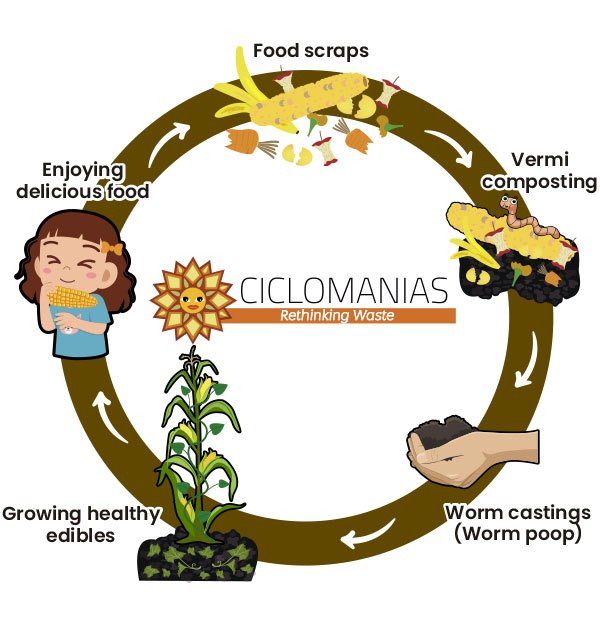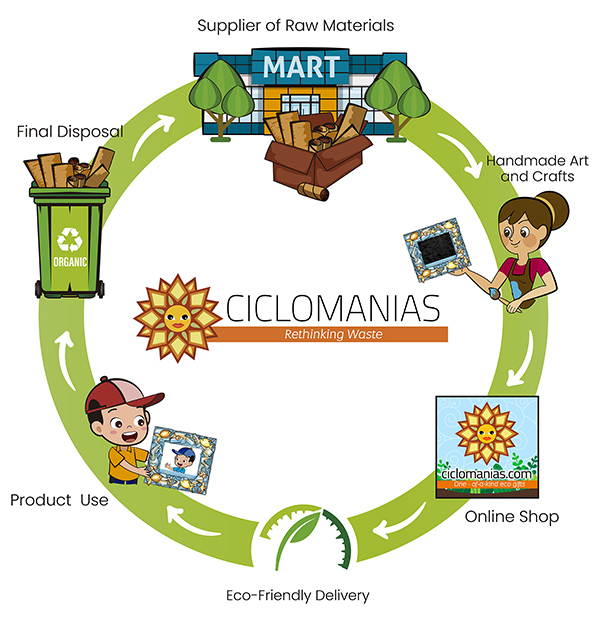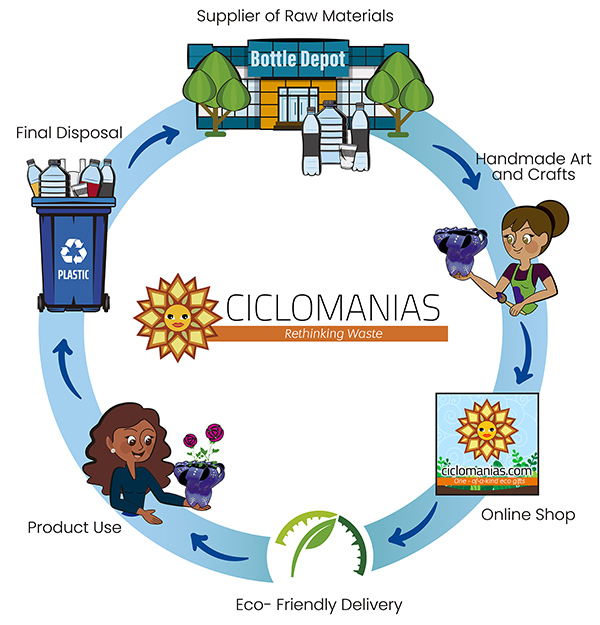Life Cycle of our products
Ciclomanias contributes to a circular economy by upcycling recycled materials, vermicomposting, and teaching others that waste does not have to end up in the landfill but can have other regenerative and creative uses.
The cradle-to-cradle products created at Ciclomanias emulates natural systems by reincorporating the materials used into a closed loop system and by extending the life span of the products. Ciclomanias is also looking for ways to reduce its carbon emissions by purchasing carbon offsets through its Etsy online shop.
The infographics below show the supply chain and circularity of the products made of organic waste, recycled corrugated cardboard boxes, and recycled plastic bottles.


